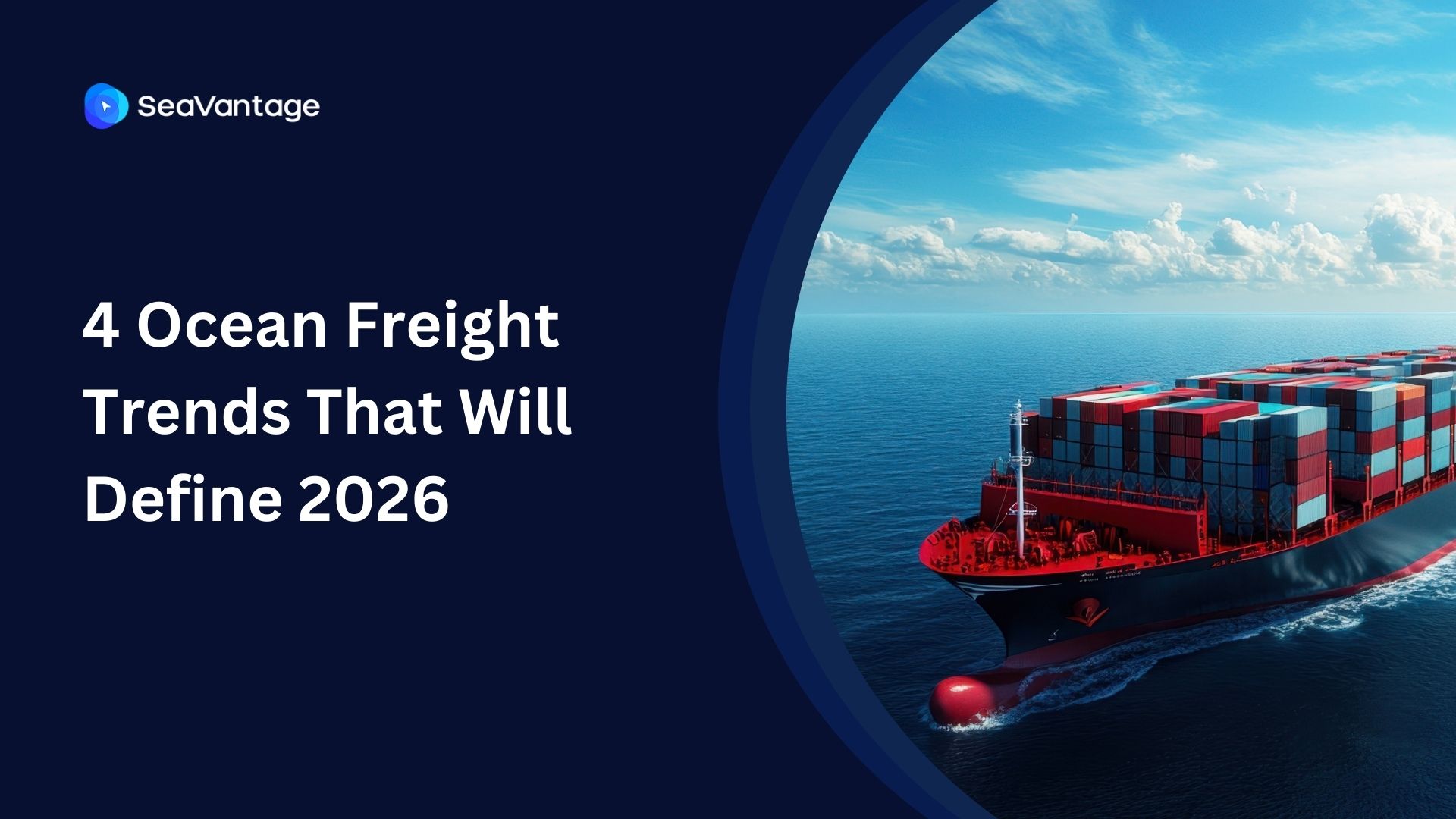US/EU Sanction on Russia: Impact on Ocean Shipping

Why Sanctions on Russia?
The United States along with the G7 and the EU announced additional economic sanctions against Russia on April 6th for its brutality in Ukraine, particularly in Bucha.
Earlier this year, the US and EU introduced sanctions against Russia after Putin ordered Russian troops to be sent to the disputed cities (Donetsk & Luhansk) in eastern Ukraine. In February, the US stopped new investments in and from Russia and introduced new import and export restrictions in the region. The EU imposed travel bans and froze the assets of high-profile individuals in Russia. These sanctions follow a series of sanctions against Russia after its annexation of Crimea in 2014.
As the US continues to implement new sanctions against Russia, the country is being further isolated from the global economy. In line with the sanctions since the beginning of this year, over 600 multinational companies in manufacturing, energy, large retail, financial institutions, and consulting firms have left Russia. The impact is significant as data shows that nearly 300,000 companies in the U.S. and Europe have suppliers in Russia and Ukraine.
What do these sanctions mean for Ocean Shipping
- Bulkers and Tankers Route Calibration
The U.S earlier last month announced new bans on Russian energy commodities. Currently, US authorities have banned imports of Russian oil, diesel, and other fuels as part of stepping up economic sanctions on Russia. These energy imports will likely have to be sourced internally or imported from other nations such as Canada or the Middle East.
These measures are expected to significantly disrupt the ocean trade flow of global tanker and gas carrier fleets. Not only will the sanctions affect these tankers and companies, but also every other entity or individual with ownership links to these companies.
After the news of these sanctions emerged, a number of tankers have had to change course and slow speeds. The Oil/Chemical Tanker Seavictory (Image below) which left Russia on Mar 07, 2022, had to change its course and head for a different port. Click here to track it.

- Surging Oil Prices
The chart below shows the surge in oil prices immediately after Russia’s invasion of Ukraine. Countries in western Europe, such as Germany, and France have announced restrictions on the imports of oil and LNG from Russia. However, Europe is a lot more vulnerable to a loss of Russian energy supplies than the US as it gets 40% of its natural gas imports, 25% of oil imports, and about 45% of all coal from Russia based on reports.
These oil restrictions mean they will need to find their energy supply elsewhere. However, OPEC nations thus far appear to have no intention to increase their oil supply. Unless stakeholders in the oil market come to the conclusion of a dramatic supply increase, oil prices will remain higher level than past few years. Ocean shipping, which carries 80% of all global trade, relies heavily on oil for propulsion, and due to these restrictions imposed by the US and EU, oil will become increasingly scarce, pushing up prices and ultimately affecting shipping costs and insurance premiums.

- Port Activity and Cargo Movement
The impact of these sanctions has begun taking a toll on Russian ports since February. Data from SeaVantage Port Insight, which tracks port activity and cargo movement, shows a decline in the number of vessels anchoring at Saint Petersburg port and Novorossiysk, the two major ports in Russia. In adherence to the sanctions and fears of being caught in a crossfire, some shipping companies have been canceling calls to these ports. For instance, companies such as Maersk, CMA CGM, and Hapag Lloyd, which have all suspended their service to Russia, account for over half of the container traffic at the port of Saint Petersburg.

How our visibility platform can help you in light of these sanctions.
The effects of the war, along with sanctions placed on companies doing business with Russia, and U.S. companies pulling out of Russia, will be long-lasting. At this stage, no one can predict how things will continue to evolve in the conflict, however, at SeaVantage, we believe you can take a proactive approach to these developments.
Our port insight platform does not only provide real-time port congestion information but also predicted port congestion intel to help you manage blindspots and black swan events.
Keep updated on all ports of your interest with our interactive web application and API integration. Our port platform provides insight into individual terminals, ports, and predicted vessel activity. We are here to tell you that there are many different ways to mitigate this impact.
We hope that the information from this article helped you in any way. If you have any further questions, please let us know. We would love to hear from you!
SeaVantage offers real-time tracking and visibility solutions for freight forwarders, carriers, cargo owners, and terminal/port operators. Our proprietary AI Maritime Traffic Network provides a more informed prediction of vessel or container arrival time for all stakeholders in the supply chain by bringing in additional data streams.
Email: sales@seavantage.com
Tel: (+82) 02-3444-7302 / (+82) 02-3444-7303
2025년 9월, 주요 글로벌 항만에서 어떤 운송사가 가장 긴 선박 체류 시간을 기록했는지 확인해보세요. 트렌드를 비교하고, 지연을 파악하며, 전체 항만 데이터를 통해 운송 전략을 최적화할 수 있습니다.
2025년 8월, 주요 글로벌 항만에서 어떤 운송사가 가장 긴 선박 체류 시간을 기록했는지 확인해보세요. 트렌드를 비교하고, 지연을 파악하며, 전체 항만 데이터를 통해 운송 전략을 최적화할 수 있습니다.
2025년 7월, 주요 글로벌 항만에서 어떤 운송사가 가장 긴 선박 체류 시간을 기록했는지 확인해보세요. 트렌드를 비교하고, 지연을 파악하며, 전체 항만 데이터를 통해 운송 전략을 최적화할 수 있습니다.
Explore how tariffs, blank sailings, port congestion, and canal disruptions reshaped global ocean shipping in 2025 — and what supply chain leaders must do next.
Is your ocean supply chain ready for 2026? Discover 4 critical trends, from weather disruptions to strategic booking, and how to adapt.
iscover the 4 critical ocean freight trends for 2026, from the Red Sea reopening and fleet overcapacity to shifting global trade maps. Prepare your supply chain now.



.svg)







.png)